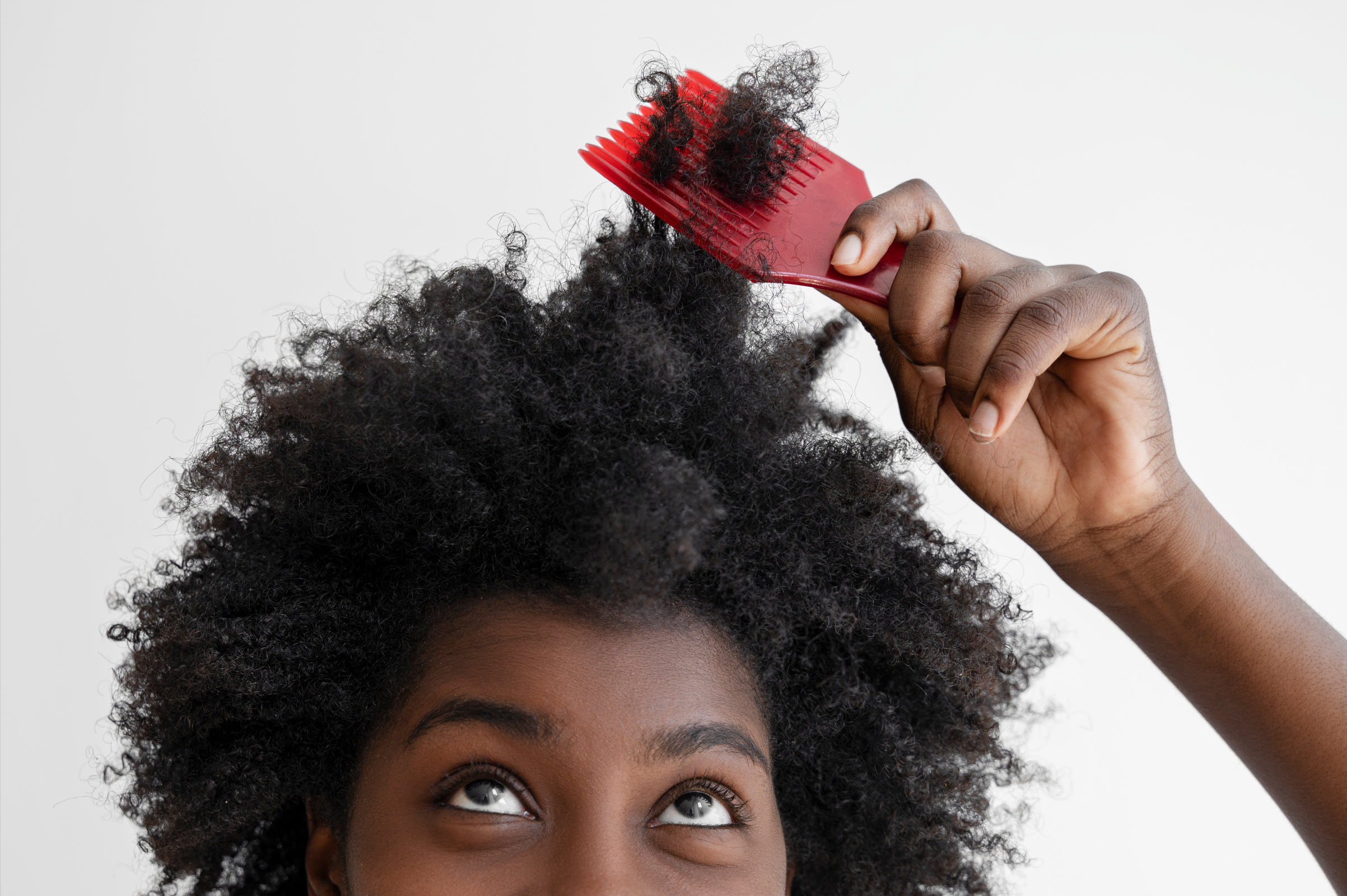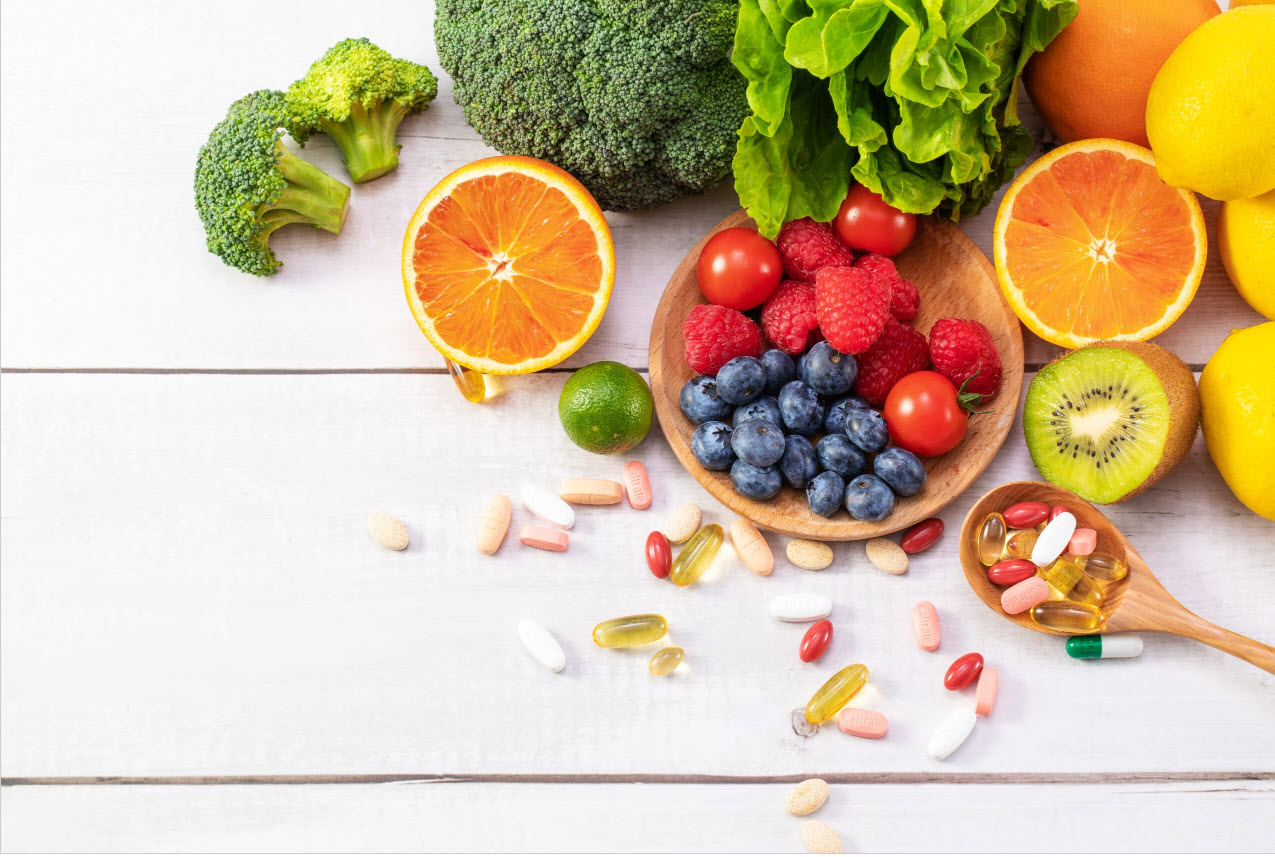Maintaining healthy natural hair typically involves a combination of several factors. Have you ever approached someone with long, full, beautiful, and healthy hair and asked for their “secret”?
Often, you’ll find out that they don’t have a single “big secret” to share. Such inquiries often leaves them amused. Achieving healthy hair isn’t simply about using one magical ingredient. Other factors must also be considered and implemented.
Moisture has to be present, the right tools have to be used, good products are just great, friendly weather and environmental conditions are a plus, a healthy diet should be in place, as well as Hair-friendly Vitamins and Supplements—which is our focus for today.
Incorporating Vitamins and Supplements may not be the first thing that a trichologist would discuss when giving a hair care lecture, but their role cannot be overlooked.
In today’s article, we will discuss the amazing benefits of vitamins and supplements for your hair and how to incorporate them into your hair care routine.
The Benefits of Vitamins and Supplements for Hair

Promotes Hair Growth
One of the biggest desires of many Naturalists is to achieve longer hair. In addition to all other hair regimens, vitamins and supplements provide essential nutrients that support the hair growth cycle, stimulate the growth of new hair strands, and minimize hair loss. Vitamins also help combat issues like hair thinning and breakage.
Improves Hair Strength and Elasticity
Vitamins and minerals such as biotin, vitamin E, and zinc help to strengthen hair follicles, thereby contributing to stronger, more resilient hair and reducing breakage and split ends.
Enhances Scalp Health
Many vitamins and antioxidants have anti-inflammatory properties that soothe and nourish the scalp, reducing irritation and dandruff. These vitamins also help to nourish the scalp, creating the perfect environment for hair follicles to thrive and produce healthy hair.
Enhances Hair Texture and Shine
Regular intake of vitamins and supplements can improve the texture and appearance of hair, making it smoother, softer, and shinier. So, if your hair looks dull and unattractive, supplements, among other things, can help give it a healthier look.
Prevents Hair Damage
Vitamins and other supplements protect against damage by preventing oxidative stress, which can cause hair to become brittle, dry, and prone to breakage.
Key Vitamins and Supplements Essential for Hair Health

Biotin (Vitamin B7)
Biotin is perhaps the most well-known supplement for hair health. It helps produce keratin, a protein that makes up the structure of hair. Biotin supplements are widely available and can be taken orally as part of a daily routine. Food sources rich in biotin include eggs, nuts, seeds, sweet potatoes, and leafy greens. Incorporating these into your diet can provide a natural source of biotin.
Vitamin A
Vitamin A is essential for the production of sebum, an oily substance produced by the skin’s sebaceous glands. Sebum helps moisturize the scalp and keep hair healthy. Vitamin A supplements can be taken orally, but it’s important not to exceed the recommended dosage to avoid adverse effects. Food sources of vitamin A include liver, carrots, sweet potatoes, and spinach, making it possible to obtain adequate levels through diet alone.
Vitamin C
Vitamin C is an antioxidant that helps protect hair follicles from damage caused by free radicals. It also aids in absorbing iron, which is necessary for healthy hair growth. Vitamin C supplements can be taken orally, but it’s also abundant in many fruits and vegetables, such as oranges, strawberries, kiwis, bell peppers, and broccoli.
Vitamin D
Vitamin D is important for maintaining healthy hair follicles and promoting the growth of new hair follicles. Deficiency in vitamin D has been linked to hair loss and thinning. Food sources of vitamin D include fatty fish (e.g salmon), egg yolks, etc. Vitamin D can also be obtained through exposure to sunlight.
Vitamin E
Vitamin E is another antioxidant that helps prevent oxidative stress, which can contribute to hair damage and hair loss. It also promotes blood circulation, important for delivering nutrients to the scalp and hair follicles. It’s supplements are available and can be taken orally or gotten through food sources such as nuts, avocado, spinach, vegetable oils, etc.
Iron
Iron is necessary for producing hemoglobin, which carries oxygen to the body’s cells, including the hair follicles. Iron deficiency can lead to anemia, associated with hair loss and thinning.
Omega-3 Fatty Acids
Omega-3 fatty acids help hydrate the scalp and keep hair follicles nourished. They also have anti-inflammatory properties, which can help reduce scalp inflammation and promote healthy hair growth. Food sources of Omega-3 fatty acids include fatty fish, flaxseeds, walnuts, etc. It’s supplements can also be taken orally.
Protein
Protein is the building block of hair, so adequate intake is essential for healthy hair growth. Incorporating protein sources such as poultry, meat, eggs, legumes, and nuts into your diet is essential for maintaining optimum hair health. Protein supplements such as collagen or protein powders can also be added to smoothies, shakes, or baked goods to increase daily protein intake. This regular protein intake provides the amino acids necessary for building strong, healthy hair strands.
Any Side Effects?

While supplements can offer numerous benefits for hair health, it’s important to consult a health care professional before using any. Some of the side effects of these supplements include acne breakouts or skin rashes, inaccurate laboratory test results (because of the interference of these supplements), nausea, headaches, etc.
After consulting with a healthcare professional, also do yourself good by sticking to the recommended dosage. Additionally, if you experience any adverse effects while taking supplements, discontinue use and seek medical advice.
In summary, it is crucial to understand the significance of vitamins and supplements in maintaining healthy hair. Alongside other aspects of your hair care regimen, ensuring sufficient intake of essential vitamins and nutrients is paramount. Incorporating supplements can provide additional support, particularly for individuals with deficiencies or specific hair-related issues. By doing all of these, your hair will definitely flourish just like that of your favorite natural hair influencers.











